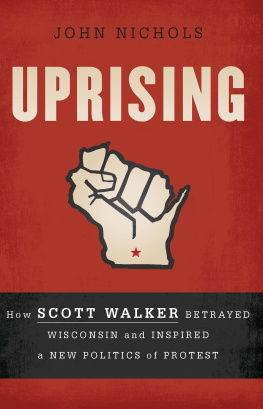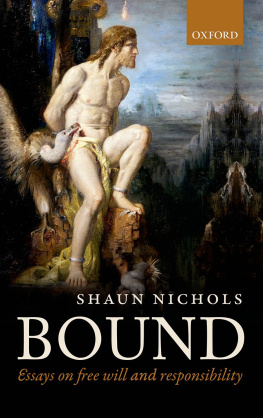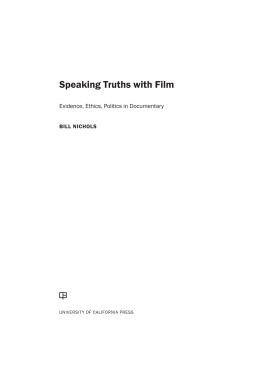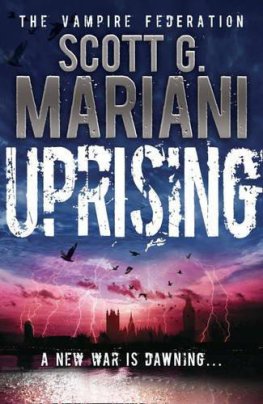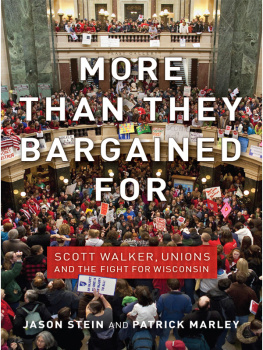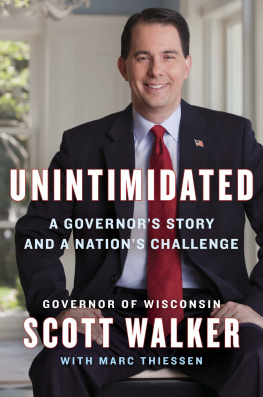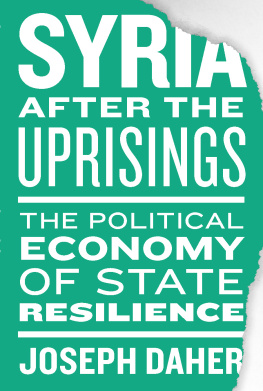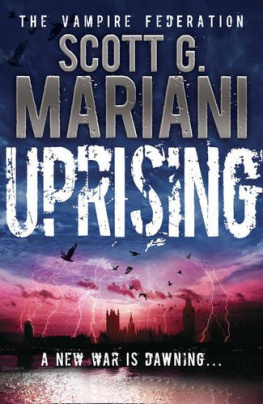Nation Books is a co-publishing venture of the Nation Institute and the Perseus Books Group
All rights reserved. Printed in the United States of America. No part of this book may be reproduced in any manner whatsoever without written permission except in the case of brief quotations embodied in critical articles and reviews.
For information, address the Perseus Books Group, 387 Park Avenue South, New York, NY 10016-8810.
Editorial production by Marrathon Production Services. www.marrathon.net
A CIP catalog record for this book is available from the Library of Congress.
a descendent of Abner Nichols, the Cornish tin miner who came in 1824 to mine lead at Mineral Point, Wisconsin
FOREWORD
But that desire is still out there. Its the force behind a huge new movement we dont even have a name for yet, a movement thats not a left opposed to a right, but perhaps a below against above, little against big, local and decentralized against consolidated. If we could throw out the old definitions, we could recognize where the new alliances lie; and those alliancesof small farmers, of factory workers, of environmentalists, of the poor, of the indigenous, of the just, of the farseeingcould be extraordinarily powerful against the forces of corporate profit and institutional violence.
Rebecca Solnit, Acts of Hope, 2004
W HEN THE Fox News channels Bill OReilly reported on a supposed outbreak of union thug violence during the mass protests that erupted in Wisconsin in the winter of 2011, Rupert Murdochs network coupled its report of alleged thuggery in Madison with images of men pushing and shoving another in front of palm trees.
Palm trees are not native to Wisconsin.
But they are useful for the purposes of this book.
Fox claims to offer a news report that is fair and balanced. And if that is the fantasy you prefer, then I am certain Mr. OReilly will be pleased to provide it.
This book, on the other hand, rejects the fantasy.
I am not an unbiased observer, and this is not an unbiased account.
How could I be? I am a Wisconsinite. I was proud of my state before it became the westernmost exemplar of the Arab Spring, before its name became synonymous with the term uprising, before plastic cheeseheads became political statements so infused with meaning that in the fall of 2011, Occupy Wall Street protesters erupted with cheers at the arrival of allies adorned with the cheddar.
I was born and raised in Wisconsin. So was my mother, and my father. So were my grandparents on both sides. And my great-grandparents. And my great-great-grandparents. My relatives on my mothers side and my fathers side settled in Wisconsin before statehood. Ive got a relative, living or dead, in every crossroads town from Green Bay to Grant County, from Mineral Point to Madison, from Owen to Oshkosh.
I was raised in southeastern Wisconsin, just west of Racine and Kenosha, in a place and time when unions were honorable and omnipresent. I met Teddy Kennedy at the United Auto Workers Local 72 hall in Kenosha, read the Racine labor newspaper even before my friend Roger Bybee became the editor, and never entertained the notion that any politician, Republican or Democrat, would dare to try and break a union.
When I finished graduate school, I turned down an offer to work for a nonunion paper in Pennsylvania and hired on as a reporter for the Blade in Toledo, Ohio. The day I arrived, I proudly signed my card as a member of the Newspaper Guild, AFL-CIO. I was union then, and Im union now.
Thats where I come from, and thats where this book comes from.
I thought Wisconsin mattered before my old friend Scott Walkeryes, the governor and I were once on good termstried to strip away the collective bargaining rights of state, county, and municipal employees and my kids first-grade teacher, Susan Stern. I thought it mattered even more after my neighbors David Panofsky and Pat Smith, my high school pal Marcia Vlach, my moms friends from Burlington and Union Grove, and a hundred thousand or so other Wisconsinites showed up with their handmade signs at the capitol and kicked off the most remarkable labor uprising in modern American history.
This book examines that uprising from a number of perspectives, not merely to offer a sense of what happened and what is still happening in Wisconsin but to consider what an uprising and its aftermath may mean for labor, for popular organizing, for media reform, for politics, for democracy. And, perhaps most important, how one uprising inspires the next.
The chapters are organized around themes, rather than along a timeline. Some of the same people show up in multiple chapters, a few stories are retold, from slightly different angles to make slightly different points. And some touchstones, the wisdom of Tom Paine and Walt Whitman, the groundbreaking insights of my friend and inspiration Howard Zinn and his true successor, Rebecca Solnit, are omnipresent. So, too, is Naomi Klein, who explained the shock doctrine that was so very much on display in Wisconsins budget fight. The mashup will come as no surprise to anyone who witnessed the remarkable events that played out in Wisconsin. Traditional boundaries were crossed, again and again and again. Students became leaders. Legislators became outlaws. Union leaders became media producers. Musicians became organizers. Sheriffs deputies became protesters. Librarians announced that they were not afraid of the National Guard. And Republican legislators made a mockery of the Constitution they claimed to cherish with something akin to biblical reverence. Wisconsin was, and is, a whirlwind. And it has swept far beyond the borders of one state, which is why this book references and celebrates struggles from Cairo to Kalamazoo, from Ohios successful campaign to overturn that states anti-labor law to the movement that decided to Occupy Wall Street.
There are heroes who go unmentioned, and I regret that. I regret not having the space to recount every brilliant, bold, and hilarious slogan on every sign at every march, although I do hope folks will recall the one attached by an eighty-year-old woman to the device she used to keep her balance: AT LEAST THIS WALKER IS USEFUL. I regret not having the space to name every brilliant, bold, and hilarious Wisconsinite who held those signs, come rain or sleet or dark of nightcome wind or frigid snow, as Tom Morello sang in his song of the Wisconsin struggle, Union Town. But I do want to mention a few people who made this book possible. The editors at the Nation , including Katrina vanden Heuvel, Roane Carey, Richard Kim, Betsy Reed, Emily Douglas, Frank Reynolds, Peter Rothberg, Gennady Kolker, my fellow reporters and writers, the interns, the web team. Everyone recognized the importance of what was playing out in Wisconsin and nationally. They supported and sustained my reporting, as did Dave Zweifel, Paul Fanlund, Chris Murphy, and especially Lynn Danielson and the amazing Judie Kleinmaier of the Capital Times . I am a media critic by training and avocation, which makes me all the more proud of the role that the Capital Times and the Nation played in telling the story of Wisconsin and in providing perspective on how and why it mattered.

